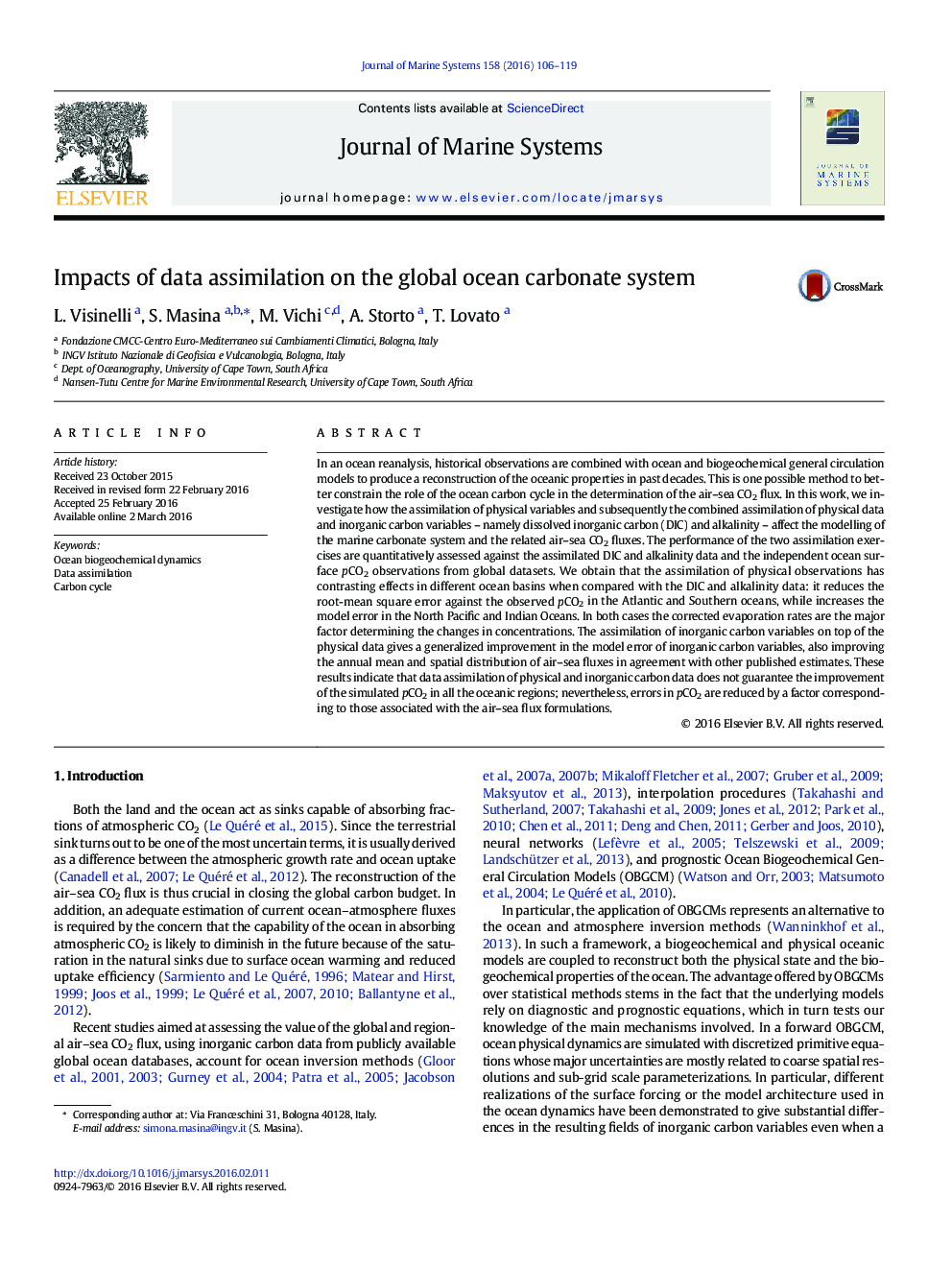| کد مقاله | کد نشریه | سال انتشار | مقاله انگلیسی | نسخه تمام متن |
|---|---|---|---|---|
| 4547900 | 1627272 | 2016 | 14 صفحه PDF | دانلود رایگان |
• Impacts of physical–biogeochemical data assimilation on marine carbonate system are addressed.
• A coupled model (NEMO, LIM2, BFM) for the global ocean is combined with 3DVAR system.
• Physical-only data assimilation has contrasting effects on the regional carbonate system dynamic.
• Combined assimilation of physical and inorganic carbon data improves global estimate of DIC and ALK.
In an ocean reanalysis, historical observations are combined with ocean and biogeochemical general circulation models to produce a reconstruction of the oceanic properties in past decades. This is one possible method to better constrain the role of the ocean carbon cycle in the determination of the air–sea CO2 flux. In this work, we investigate how the assimilation of physical variables and subsequently the combined assimilation of physical data and inorganic carbon variables – namely dissolved inorganic carbon (DIC) and alkalinity – affect the modelling of the marine carbonate system and the related air–sea CO2 fluxes. The performance of the two assimilation exercises are quantitatively assessed against the assimilated DIC and alkalinity data and the independent ocean surface pCO2 observations from global datasets. We obtain that the assimilation of physical observations has contrasting effects in different ocean basins when compared with the DIC and alkalinity data: it reduces the root-mean square error against the observed pCO2 in the Atlantic and Southern oceans, while increases the model error in the North Pacific and Indian Oceans. In both cases the corrected evaporation rates are the major factor determining the changes in concentrations. The assimilation of inorganic carbon variables on top of the physical data gives a generalized improvement in the model error of inorganic carbon variables, also improving the annual mean and spatial distribution of air–sea fluxes in agreement with other published estimates. These results indicate that data assimilation of physical and inorganic carbon data does not guarantee the improvement of the simulated pCO2 in all the oceanic regions; nevertheless, errors in pCO2 are reduced by a factor corresponding to those associated with the air–sea flux formulations.
Journal: Journal of Marine Systems - Volume 158, June 2016, Pages 106–119
